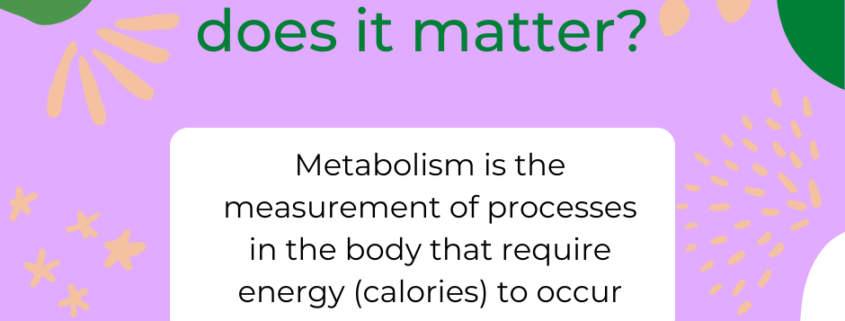What is Metabolism?
The new year brings many things, a renewed focus on goals, perhaps transitioning out of a more relaxed approach to nutrition. If improving your health or comfort through weight loss is one of your goals, you may be asking, “How can I overcome my slow metabolism?” So, what does metabolism have to do with your weight?
Metabolism is the measurement of processes within the body that require energy (calories) to carry them out. Many things affect your metabolism including your muscle mass, gender, and genetics. While it has been assumed that metabolism slows as we age, there is now evidence showing this is not the case. In a study of over 6,400 adults, the resting metabolic rate of adults aged 20-60 was shown to remain stable. After age 60, there was a decline of only 0.7% each year.
So, what does this mean for your health-related goals?
Once you have an understanding that weight can change for reasons beyond metabolism, finding the other factors that affect your weight are key to achieving your goals. These may include how often you’re eating, physical activity, hormone imbalances, and the types of food you are eating.
If you are concerned that your metabolism has taken a dip, there are several ways to assess this. There are calculators based on your age, weight and gender, but these will not measure your specific metabolism. Your Resting Metabolic Rate (or RMR) can be assessed in our office by measuring the amount of oxygen your body consumes to determine the calories your body burns at rest. This data, along with an assessment by a dietitian, can be helpful in determining the best nutrition strategy for your health.
JM



